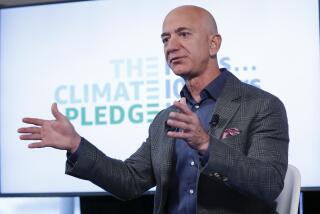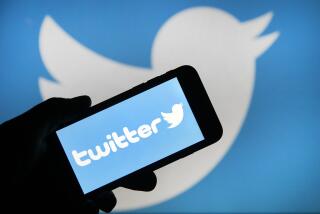Book publishers embrace -- and detest -- Kindle
Since Amazon.com debuted its first Kindle e-book reader late in 2007, the reaction within the book industry has been a mix of welcome and scorn.
Welcome because of the potential to tap an entirely new market -- before a wave of digital piracy similar to the one that decimated the music business. Scorn because of fears that the online retail giant, which already has a commanding share of the market for printed books, might use its leverage to seize control of the new market and push down prices even further.
Publishers have been fighting back and seemed to score an important victory recently, with Amazon reportedly agreeing to a model that would let publishers set higher prices for e-books sold for the Kindle.
Analysts say a truce is likely but won’t do much harm to Amazon even if the company raises the prices of e-books from $9.99, which has helped make the Kindle a major hit.
The Seattle company discloses little data about its Kindle business, but it is widely estimated that Amazon loses money on most e-books that it sells for that price. Higher prices would mean a better margin for the business even if the sales volume takes a small hit, experts say.
But concerns persist about whether publishers will give any ground on e-book prices. In theory, the companies should still make good profits on e-books at lower prices, because they are saving on printing, binding and distribution, costs that make up an estimated 10% to 12% of a hardcover book’s price.
Ironically, the company that has thrown the biggest wrench into Amazon’s plans is the very company that Amazon was trying to emulate -- Apple Inc.
Apple, with the launch of the iPod and its iTunes online music store, turned the music industry on its ear.
The store sold single tracks for 99 cents and kept most albums under $10. The music industry had already seen its profits socked by digital piracy, so it begrudgingly accepted a model that allowed it to see some revenue -- even if it was less than what they were accustomed to.
Amazon tried the same simplified pricing scheme for e-books, pushing publishers to keep the prices below $10.
But last month, Apple introduced the iPad tablet device and with it announced a new service called iBookstore.
No prices were announced for the store, but the company said it would let publishers set their own rather than force them to accept a set price.
Six major publishers announced support of the iPad and have been pushing Amazon to allow them to set higher prices.
In an op-ed column in the Wall Street Journal last week, the head of a major publishing house offered what some considered to be an olive branch in the battle over e-books pricing.
John Makinson, chief executive of the Penguin Group, wrote that it’s fruitless for publishers to stand between readers and their choices. But he also noted that the physical cost of a book is roughly on par with the average margin of the consumer book-publishing industry, “and what’s needed to keep investing in new writing and new ideas.”
“So there’s some room for discussion but not that much,” he wrote.
Al Greco, a professor of business at Fordham University who studies the book market, called Makinson’s piece “an attempt to calm the waters.” He noted that five of the six major publishers have entered into what is called an “agency agreement” with Apple to allow the company to sell e-books for its iPad, but it gives publishers control over pricing.
Such a model “will become the norm for all sales of e-books in the future,” Greco said. “Ironically, while Amazon seems to not like that agency approach, they lost money on every transaction under their current model,” he said. “From a financial point of view, Amazon will make more money this way.”
He noted the risk, however, that consumers have now become used to a $9.99 price tag for e-books, which may make some resistant to the idea of paying higher prices.
“Will consumers walk away? I don’t think so,” Greco said.
Stephen Windwalker, a small book publisher and author of the Kindle Nation Daily blog, agrees that Amazon will probably do well even under higher prices.
He also noted that publishers may be ignoring Amazon’s key strengths -- at their own peril. “There are two things that Amazon knows more about more than anyone else in the world: price elasticity and their own customers,” he said. “If higher prices begin to suppress sales and profits, then I think it’s fair to assume they [publishers] will not march in lockstep.”
More to Read
Sign up for our Book Club newsletter
Get the latest news, events and more from the Los Angeles Times Book Club, and help us get L.A. reading and talking.
You may occasionally receive promotional content from the Los Angeles Times.







